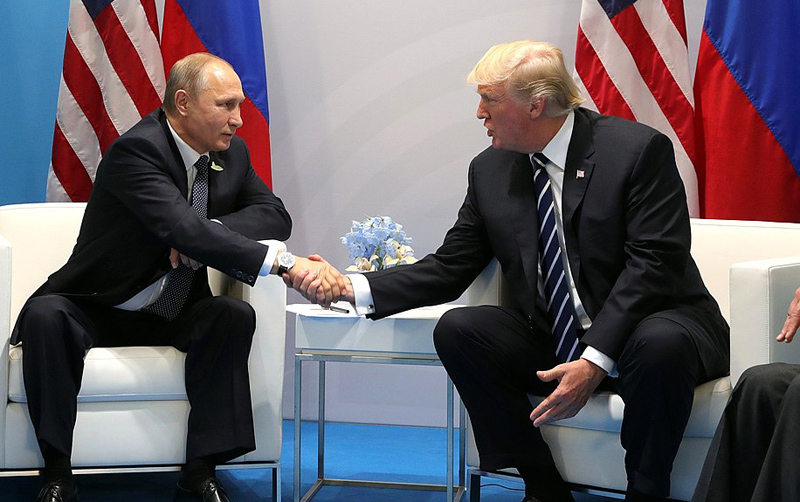
Perspectives January 18, 2018
As Global Democracy Declines, Trump Embraces Dictators
In his first year as U.S. president, Donald Trump has regularly praised rulers known for their antidemocratic practices.

In his first year as U.S. president, Donald Trump has regularly praised rulers known for their antidemocratic practices.
Many U.S. presidents since World War II have cooperated with authoritarian regimes and leaders for strategic reasons, but President Trump has gone out of his way to express personal admiration for some of the world’s most notorious authoritarian leaders, adding to doubts about his overall commitment to democracy and human rights as a mainstay of U.S. foreign policy.
Below are a few examples of the president’s remarks about foreign leaders.

On President Rodrigo Duterte of the Philippines: “I just wanted to congratulate you because I am hearing of the unbelievable job on the drug problem.”
Duterte’s crackdown on the drug trade has led to the extrajudicial killing of over 7,000 people.

On President Recep Tayyip Erdoğan of Turkey: “He’s running a very difficult part of the world. He’s involved very, very strongly and, frankly, he’s getting very high marks.”
Erdoğan has broken down democratic checks on his power through a flawed constitutional referendum and carried out a massive purge of his perceived enemies since an attempted coup in 2016, with at least 60,000 people arrested, many more dismissed or suspended from public-sector jobs, and over 160 media outlets summarily shuttered.

On President Abdel Fattah al-Sisi of Egypt: “President al-Sisi has been somebody that’s been very close to me from the first time I met him.… He’s done a fantastic job in a very difficult situation.”
Sisi, who first took power in a 2013 coup, has a stranglehold on the political system in Egypt and is actively crushing any civic groups or media outlets that criticize his rule.

On King Salman of Saudi Arabia: “I have great confidence in King Salman and the Crown Prince of Saudi Arabia, they know exactly what they are doing.”
Saudi Arabia’s absolute monarchy denies citizens nearly all political rights and civil liberties through a combination of oppressive laws and the use of force. The crown prince has recently overseen mass arrests without due process as part of an “anticorruption” effort that observers have linked to suppression of dissent.

On President Xi Jinping of China: “I really believe he’s a good person, he’s a good man, he wants to do right, he’s representing his people. He’s strong, he’s very strong.”
Xi Jinping leads a one-party state that aggressively censors the internet, persecutes major ethnic and religious minorities, and bans all political opposition. In recent years, his government has cracked down on human rights lawyers who attempt to defend the victims of such abuses.

On President Vladimir Putin of Russia: “We seem to have a very good feeling for each other and a good relationship considering we don’t know each other well. I think it’s a very good relationship.”
Putin’s authoritarian government actively interfered in the 2016 U.S. elections, according to U.S. intelligence agencies, though Trump has at times cast doubt on that finding. When Moscow forced a drastic reduction in the number of U.S. diplomatic personnel allowed in Russia in retaliation for U.S. sanctions related to the election meddling, Trump lightheartedly thanked Putin for cutting down on the U.S. payroll and saving Washington “a lot of money.”
